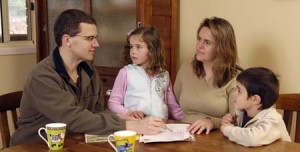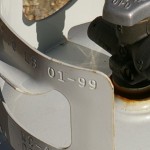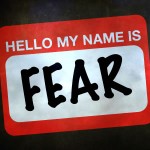From TheSurvivalPlaceBlog.com

We all know how important our children’s safety is, so lets talk about things to discuss with your kids and some important things to do before an emergency.
Be sure to include your children in family discussions and planning for emergency safety. This is very important because they need to feel comfortable in knowing what to do in an emergency situation and it could save their life or even perhaps yours. We’ve all heard those stories on the evening news of a 3-year-old calling 911 and saving a relative from some sort of medical emergency, this is a very real scenario. Is you child ready to make that call? If the answer is no then the easiest way to do this is to role-play with children on what to say when calling Emergency 9-1-1 and what sorts of things would make them need to call and get help. Things such as fire, intruders in your home and medical emergencies if a parent or relative is suddenly sick, injured or non responsive.
Teach your children their basic personal information so they can identify themselves and get help if they become separated from a parent or guardian. Teach children to dial their home telephone number and Emergency 9-1-1. You can also prepare an emergency card with information for each child, including his/her full name, address, phone number, parent’s work number and out-of-state contact. This is ideal for putting in their school back pack so in the event of an emergency they have access to vital information they might not be able to remember due to the stressful situation.
Regularly update your child’s school with current emergency contact information and persons authorized to pick up your child from school an know the policies of the school or daycare center your children attend. Remember to tell your children never to go with someone they don’t know and you need discuss stranger danger with them and what to do.
Role-play with children to help them remain calm in emergencies and to practice basic emergency responses such as Drop, Cover & Hold, evacuation routes and the family’s alternate meeting sites if you are separated in a disaster and cannot return to your home. Teach children what gas smells like and advise them to tell an adult if they smell gas after an emergency and warn children never to touch wires on poles or lying on the ground.
Include a family picture and a favorite toy, game or book for each child in his/her Bug-Out Bag and include a copy of your child’s emergency card and include information on reunification locations and out-of-area contacts, such as grandparents or other relatives. Provide comfort food and treats for each child in your family disaster supplies kit, this helps them feel a bit more normal in a stressful situation. Keep a recent photo of your children in your Bug-Out Bag in case you get separated in an emergency situation. It’s a lot easier to show a picture rather than trying to describe what you child looks like and for most people it will be easier to remember your child by seeing the picture rather than your desperate description.
So take the time to sit down and make a short list of things you want to discuss with your children, this will help you with the actual discussion and give you a check list so you don’t forget what you want to talk about. Make it fun by having them make their own contact card, they can color or decorate it and they will also be learning their phone number , address and other vital contact info. So go ahead, what are you waiting for, the sooner you start the sooner you’ll feel much better knowing your children are just a bit safer than they were yesterday.
—
This article was originally posted at http://thesurvivalplaceblog.com/2012/07/30/children-and-emergency-planning/







